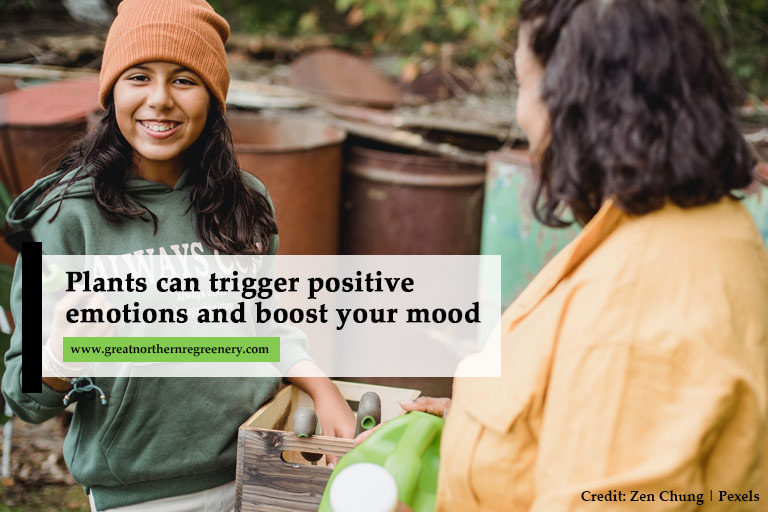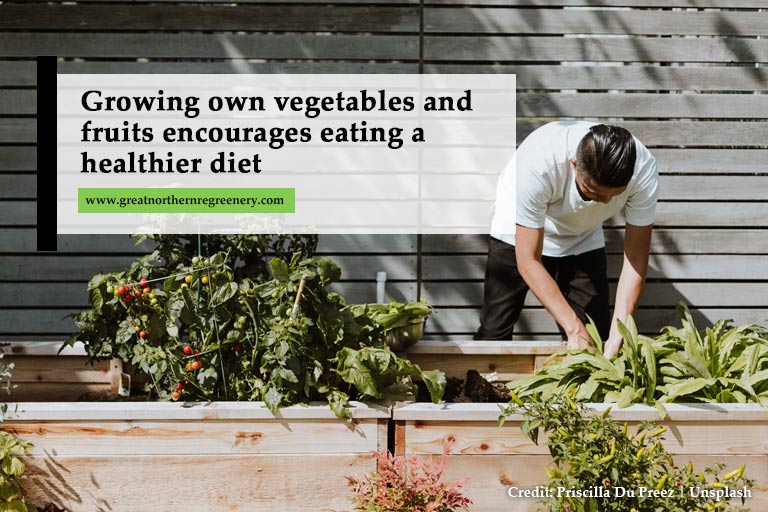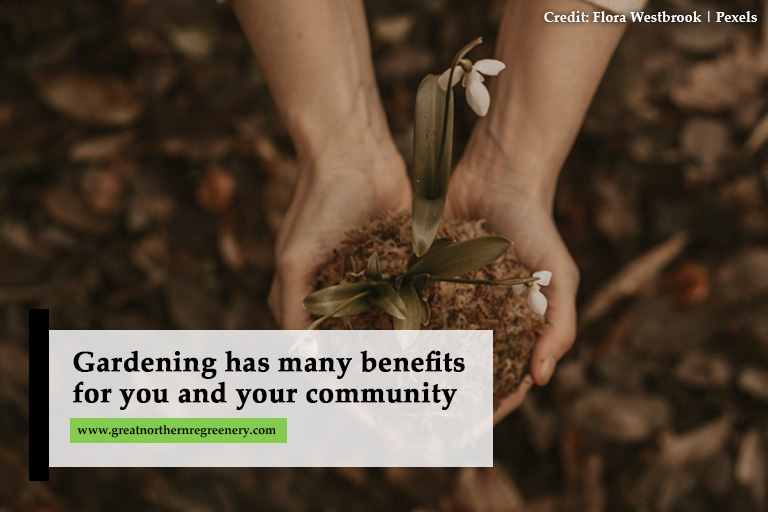Gardening is far more than a hobby; it has many well-documented advantages that people would enjoy. Existing research on the health benefits of gardening proves the healthy connection between gardening and well-being. Physical activity can help you maintain a healthy weight and blood pressure, and simply engaging with the flora can boost your mood and mental health.
Spending time in the garden tending plants and cultivating your own food can be a very satisfying activity for all, including people with disabilities, elders, and children. Whether you’re a casual gardener or a skilled horticulturist, you can reap the benefits of gardening by spending time digging in the dirt and caring for your plants.
Here are 15 reasons why gardening is good for your health.
- Helps Fight Disease
One of the minerals your body requires is vitamin D, which is produced by your skin when exposed to sunshine. Vitamin D is required for hundreds of bodily functions, including bone health and immune system function, to name a few. In addition, studies have indicated that spending time in the sun can help reduce your risk of various types of cancer, Alzheimer’s disease, diabetes, and multiple sclerosis among others. - Exposes You to Good Bacteria
One surprising benefit of gardening for your health is that it allows you to interact with a variety of good bacteria. This is known as the hygiene hypothesis. Studies have discovered a host of bacteria found in your garden dirt that can trigger the release of serotonin, a feel-good chemical that can aid in the treatment of depression symptoms. It may also help to strengthen your immune system. - Builds Strength
Gardening is a form of exercise. It requires accurate and consistent movements, which aids in the development of strength and dexterity. Working in a garden also engages every major muscle group in the body. Doctors have even advocated gardening as a rehabilitation exercise for stroke patients to improve their range of motion and enhance their hand and leg function.
Raking and cutting grass are considered light to moderate activities, while shovelling, excavating, and chopping wood fall into the hard exercise category. This fact will come as no surprise to anyone who has awoken sore from a day of garden work.
- Burns A High Amount Of Calories
As an exercise, gardening, even mild yard work, can help you burn up to 330 calories each hour. Research published in the American Journal of Public Health a few years ago found that persons who engaged in a community gardening program had lower BMIs than their non-participating neighbours, indicating that you can lose weight while having fun. - Lowers Blood Pressure Levels
Anyone with high blood pressure is at a higher risk of having a heart attack or stroke. One of the many positive effects of gardening is that it can lower your blood pressure without the use of medicine. One way it accomplishes this is by automatically lowering your worry or stress levels as you tend to your plants. According to research, adults over the age of 60 who garden have a 30% lower risk of having a heart attack or stroke than those in the same age group who do not. The more time you devote to them, the better your cardiovascular health will be. As your blood pressure drops, the strain on your arteries decreases. - Relieve Chronic Pain
For a large number of people suffering from chronic pain, the discomfort stems from their joints. They can stiffen, which makes people less likely to move them since doing so causes greater pain, and the cycle continues. Gardening might be able to help with some of the stiffness that comes with chronic pain.
You may start small by cultivating a small indoor herb garden in your house and tending to it daily. Planting, watering, and maintaining the plants will assist you in moving your joints, which in turn, helps alleviate some of the sensations you are experiencing.
- Helps You Sleep Better

Spending a few hours outside will unsurprisingly tire you, which is a good thing if you’re having trouble falling asleep. Gardening offers stress relief and aids in clearing your mind of all worries or fears. The mild workout you receive from weeding and caring to your garden can make you feel worn out. As a result, you should be able to fall asleep faster, sleep longer, and wake up refreshed and ready to face the day. If you garden every day, you may notice a significant improvement in your sleep quality.
- Improves Memory
According to new research, gardening activities may stimulate the formation of memory-related nerves in the brain. People being treated for dementia in an inpatient institution in Korea were given 20-minute gardening tasks by Korean researchers. Researchers identified increased quantities of several brain nerve growth factors connected with memory in both males and females after the residents raked and planted vegetable gardens. A separate group of researchers has also found the potential of horticultural therapy as an effective treatment for people with dementia. - Boosts Mood

When you allot time to work in your garden, your anxiety levels may decrease, and you may feel calmer. These mental health benefits of gardening were investigated in a study that extended several years and included persons with depression who participated in a gardening intervention for 12 weeks. The researchers assessed many mental health factors before and after the intervention. These include the participants’ depression symptoms, and discovered that each participant’s symptoms had significantly improved. Follow-up studies with the subjects show that those improvements persisted for months after the intervention was completed.
- Reduces Stress
Another advantage of gardening is that it can help you relax. It can assist you in recovering from a traumatic incident and bouncing back. In one research, participants were exposed to a stressful activity. After which, they were divided into two groups: one to garden and the other to read quietly. Researchers then assessed everyone’s levels of the stress hormone, cortisol, and discovered that that the gardening group recovered from stress better than the reading group. - Combats Anxiety
Observing the gradual, unmanaged effects of climate change is boosting daily stress levels and instilling a heavy sense of guilt in many people. Eco-anxiety, as experts call it, is the feeling of powerlessness or lack of control over the situation, especially of environmental damage or ecological disaster.
People discover that adopting positive action, such as making greener choices, can help them battle the negative health effects of eco-anxiety. You may garden to help the environment by reducing carbon emissions. Spending more time outdoors may minimize eco-anxiety by creating a good personal connection with the environment.
- Helps Addiction Recovery
Horticultural therapy has been practiced for years, so it shouldn’t come as a surprise that many addiction recovery clinics include gardening as part of their treatment plan. Plants can elicit pleasant emotions and feelings in persons recovering from addiction, making them valuable in rehabilitation therapy. In one study, people in a treatment program were given the opportunity to participate in a natural recovery process. They had the option of choosing gardening or art as their therapy, and those who chose gardening had a greater program completion rate and reported a better level of pleasure. - Improves Your Self-Esteem
It’s easy for you to lose confidence amidst your hectic lifestyle. This is especially true if you’ve never tried something new before and are unsure whether you’ll be successful. Gardening can be the natural and immediate self-esteem booster you need. You cultivate your seeds, water, weed, and fertilize your garden, and then sit back and watch it flourish. It feels fantastic to complete new chores, and gardens provide you with abundant opportunities to do so. Your self-esteem will surely improve as more plants begin to develop. - Helps You Eat Better

Working on a productive plot can also promote a better diet by supplying fresh, healthy produce, and you can’t deny the benefits of planting your own vegetables. Gardening encourages people to develop a long-term habit of eating a variety of fruits and vegetables. You may harvest a large quantity of fresh produce. You might even find new vegetables you’ve never tasted before, and you’ll be eating food that hasn’t been treated with pesticides or herbicides. In the right climate, you can grow and eat fresh, organic vegetables and even fruits.
- Heals And Empowers
Growing your own garden has long been a symbol of claiming space in a world that doesn’t always cater to your needs. Gardeners were simultaneously improving their health outcomes, dealing with food insecurity, and fostering a sense of community by cultivating neglected land and producing personal food sources. If you’re seeking a way to combat unfairness or nurture sustainability in the food system start, with this simple act — make an effort to grow your own food.

Simply put, gardening is good for you and your community. Gardening encourages you to go outside, socialize with other gardeners, and be responsible for your own exercise, diet, and environment. You can also cultivate feelings of empowerment, connection, and creative calm through gardening.
Reap the health benefits of gardening by starting yours today. If you need garden services from certified arborists, look no further. Great Northern Regreenery is here to help. We provide tree and plant care in Alliston, Aurora, Bradford, King City, and Newmarket. Call our toll-free number 1-877-775-7444 now!





